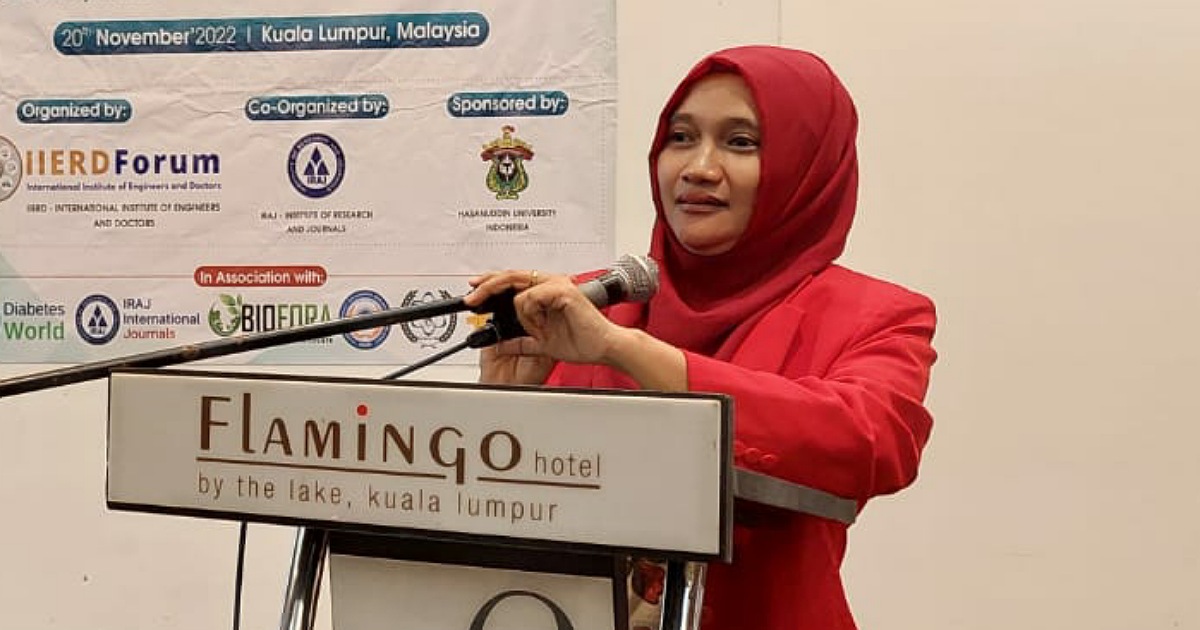Oleh : Darmin Dina, SST., M.Kes (Dosen STIKES Bina Bangsa Majene)
The maternal mortality rate (MMR) and the newborn mortality rate (IMR) in Indonesia are still public health problems that have not been managed properly. Indonesia is one of the 10 countries with the highest number of maternal and newborn deaths. Various interventions have been carried out by the government, although the results have not been optimal. For this reason, reducing MMR and IMR is the government’s main priority in implementing the 2015-2019 RPJMN and at the same time the 2030 SDGs target . Efforts to reduce MMR are also one of the government’s commitments by establishing policies and guidelines for MCH services.
Article 13 paragraph (3) and paragraph (4) Permenkes No. 21/2021 which regulates the standard of health services during pregnancy at least 6 (six) times during pregnancy , provided that: a. 1 (one) time in the first trimester ; b. 2 (two) times in the second trimester; c. 3 (three) times in the third trimester . Then it was determined further that the health services during pregnancy carried out by health workers who have the competence and authority and at least 2 (two) times by a doctor or specialist in obstetrics and gynecology in the first trimester .
1. Doctors are not evenly distributed throughout Indonesia, so that when pregnant women in TM 1 will check the pregnancy for ultrasound it will not be achieved according to the target.
2. Ultrasound equipment is not yet available in all Puskesmas, the obstacles besides human resources are also facilities and infrastructure.
3. BPJS financing which still only covers 4 ANC examinations.
Meanwhile, the current coverage of antenatal care can be monitored through indicators K1 and K4. Where K1 is a service for new visits to pregnant women when they are just found out to be pregnant, while K4 according to the SPM in the health sector is pregnant women who have contact with health workers to get ANC services according to standards with a frequency of at least 4 visits during pregnancy. With the condition that the 1st trimester is at least 1 time, the 2nd trimester is at least 1 time and the 3rd trimester is at least 2 times, the coverage of K1 and K4 has now reached the target of above 80 % .
Consequence
Pregnant women in the first trimester receive a minimum standard of health services 1 (one) time, and in the first trimester this ‘must’ be carried out by a doctor or specialist in obstetrics and gynecology. So, in one case, Pregnant women are only able/willing to carry out an examination/visit in the first trimester only 1 time, so she can only carry out her pregnancy check-up with a doctor/specialist doctor.
Based on the regulatory conditions above, pregnant women may lose their right/opportunity to carry out pregnancy checks and/or deliver their babies with midwives ( hal ini berpotensi menyebabkan missed-opportunity ). Then, in that case, midwives cannot or cannot accept atau providing health services during pregnancy , khususnya for pregnant women in the first trimester (in the case that pregnant women have not checked with a doctor/specialist? And, can midwives also cannot or cannot accept ( provide delivery health services) for pregnant women who will give birth with a midwife without the involvement of a doctor?
According to this provision, the cause of “difficulties in reaching Health Service Facilities” is simply due to distance and/or geographical conditions. Then, what about the community (patients) who experience difficulties in reaching Health Service Facilities because:
1. cost limitations;
2. long travel time;
3. transportation constraints;
4. limited transportation costs; and/or access road congestion.
Implications in ANC Services
1. The potential for unfulfilled accessibility of MCH services – family planning and women’s reproductive health
The existence of this PERMENKES will make it difficult for pregnant women to get K1 ANC services that are easy to reach in the midst of the community because the first visit must be to see a doctor. While the 2018 Riskesdas data related to ANC services is 82.4% carried out by Midwives , dimana 41% diantaranya at layani oleh TPMB.
2. Missed-opportunity / lost opportunity for pregnant women to immediately get health services during pregnancy (K1).
Jif the ANC policy is only 1 time in the 1st trimester and must be by a doctor, maka if a pregnant woman comes for ANC visit 1 to the midwife, of course the midwife will not serve or may not serve because it will terjadi mal administratif yang sangat potentially cause legal problems bagi Bidan.
Recommendation
Based on the description above, this study submits recommendations to the Ministry of Health, including the following:
1. The Ministry of Health in formulating policies and regulations should be more accommodating to the public by looking at previous policies so that they do not conflict or overlap.
2. In formulating policies to see the situation in the field, especially the adequacy of human resources and infrastructure so that policies can be implemented.
3. The Ministry of Health should make limited revisions to PERMENKES No. 21 of 2021, or establish technical guidelines by adjusting existing laws and regulations, specifically integrated with financing so that harmonization and synchronization is realized in the system of laws and regulations, as well as realizing optimal health services for pregnant women.




![Takbir S.H [Advokat Muda Sulawesi Barat]](https://i0.wp.com/sulbarupdate.com/wp-content/uploads/2025/05/Takbirr.jpg?resize=250%2C140&ssl=1)
